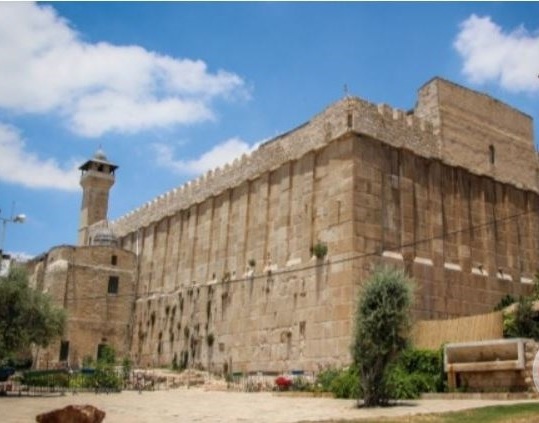Hawzah News Agency (Occupied Palestine) - The Acting Head of Hebron Endowment, Jalal al-Rajabi, said that the Israeli authorities will shut down the site from 10 p.m. Wednesday until 10 p.m. Thursday, pointing out that the doors of the mosque will open to Muslim worshipers on Friday for the call to prayer.
Al-Rajabi added that the Muslim call to prayer will also be banned during the shutdown period.
The Fatah movement rejected the closure of the Ibrahimi mosque, considering the move a crime against holy sites and against the Palestinian people, as well as a violation of all international conventions.
A member and official spokesperson of the Fatah Civil Revolutionary Council, Usama al-Qawasmi, urged Palestinians to head to the Ibrahimi mosque on Friday to pray and make the Palestinian presence known, showing rejection of the Israeli shutdown of the site.
Al-Qawasmi stressed, in a statement, that the holy site is "a purely Islamic site and Jews have no right to it.”
He also called upon the international community to act urgently to stop Israel's on-going crimes and racism against defenseless Palestinians.
Severe restrictions for Palestinians -- including denied access to the Ibrahimi Mosque -- are typically implemented by the Israeli authorities during Jewish holidays for alleged security purposes.
The mosque, believed to be the burial place of the prophet Abraham, is sacred to both Muslims and Jews and has been the site of oft-violent tensions for decades.
The holy site was split into a synagogue -- known to Jews as the Cave of Patriarchs -- and a mosque after US-born Israeli settler Baruch Goldstein massacred 29 Palestinians inside the mosque in 1994.
Since the split, Muslim worshipers have been denied access to the site during Jewish holidays and vice versa in effort to prevent violence from erupting at the holy site. Located in the center of Hebron -- one of the largest cities in the occupied West Bank -- the Old City was also divided into Palestinian and Israeli-controlled areas at the time, known as H1 and H2.
Some 800 notoriously aggressive settlers now live under the protection of the Israeli military in the Old City, surrounded by more than 30,000 Palestinians.
End.

